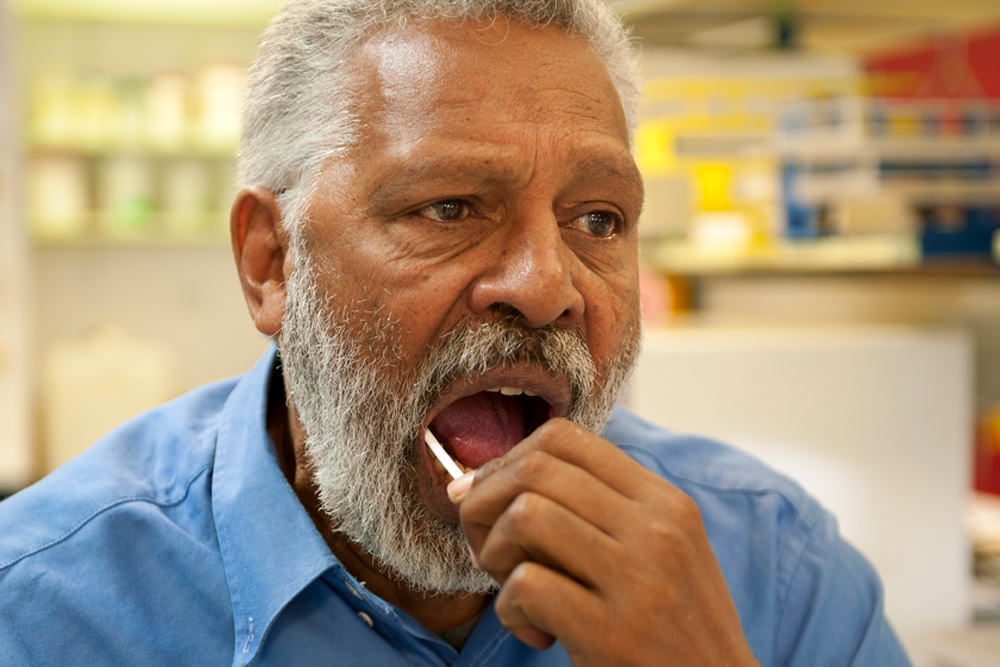Origins explored in DNA Nation
Ernie Dingo, Ian Thorpe and Julia Zemiro trace their roots back 200,000 years in the new SBS series DNA Nation.
 Actor and presenter Ernie Dingo takes part in DNA Nation
Actor and presenter Ernie Dingo takes part in DNA Nation
“Welcome home.”
For Ernie Dingo, home is with the Yamatji people of Western Australia, but in that moment, as paleoanthropologist Richard Leakey gripped his hand in the Rift Valley in Kenya, those two unexpected words really struck a chord.
“That was a defining moment for me,” he says.
“Here is this man, welcoming me back to where my family originated from. It meant a lot.”
It was one of a number of extraordinary moments within the three-part SBS series DNA Nation that follows three Australian personalities – Dingo, Olympian Ian Thorpe, and Eurovision presenter Julia Zemiro – as they use genetic testing to find out where their ancestors came from and their journey Down Under.
It was an opportunity that presented itself to Dingo through production company Blackfella Films, who contacted a number of people to gauge their interest in the series.
Dingo threw his hat in the ring and was picked.
“I wanted to do it also because of my ancestral background and to discover how long Aboriginals have been in Australia,” he says.
“One of the things going on in my head was to get an answer to that before I fall off the perch.”
But that answer was much more specific and personal. By tracking his mitochondrial DNA, geneticist John Mitchell was able to pinpoint how long Dingo’s mother’s line has lived in the Murchison region of WA, where he was born nearly six decades ago.
The answer? Some 40,000 years.
“Being there for over 43,000 years or so in the one spot, something must be good,” Dingo says.
But another surprise comes from tracking Dingo’s father’s side – a reveal you’ll have to tune in to find out.
As Dingo, Thorpe and Zemiro tracked their mother’s and father’s DNA across the world, a kind of genetic census was also being carried out back home. Marking the first survey of its kind, DNA was collected from 220 people representing six distinct ethic groups – Greek, Chinese, Indian, Aboriginal, Lebanese and Anglo-Celtic – to figure out the ancestry of Australians.
In the end, what Dingo believes it revealed, is just how multicultural Australia is.
“The traditional full-blood are an elite group and all the rest of us are mixes. The rest of us have got ingredients from all over the world,” he says.
But it makes him feel even stronger about the traditional owners of our land – and wonder if something will soon be lost forever.
“Everytime I go bush with the traditional people who have no outside blood in them, I have a strong sense of pride and respect because this basically is the last line,” he says.
“There’s a bit of sadness in that… you’re looking at some very, very ancient people.”
The similarities between Indigenous Australians and the African Hazabe tribe in Tanzania, where Thorpe, Zemiro and Dingo’s mother’s lines could be traced back some 200,000 years, was another eye-opener.
Dingo got his hands dirty helping to light a fire the same way he was taught by his own people by rubbing sticks together.
“For the Hazabe people to be making fire like that and I’ve done that in Arnhem Land in the Kimberley with my mob, it’s like we haven’t lost a thing,” he says.
It was one of a mosaic of moments in DNA Nation that together highlight the common thread that exists between all humans, regardless of race or age or gender.
It’s a point Dingo has long believed.
“Everyone’s connected in so many different ways. Every time we see an Aboriginal we call them ‘cousin’, cause although we’re a few years apart, maybe we are.”
DNA Nation starts on SBS on Sunday 22 March at 8.30pm.

What to read next
Every day across the country people are making life-changing decisions. We talk to executive producer Karen Dewey about Keeping Australia Alive.
23 Mar 2016
Caris Bizzaca